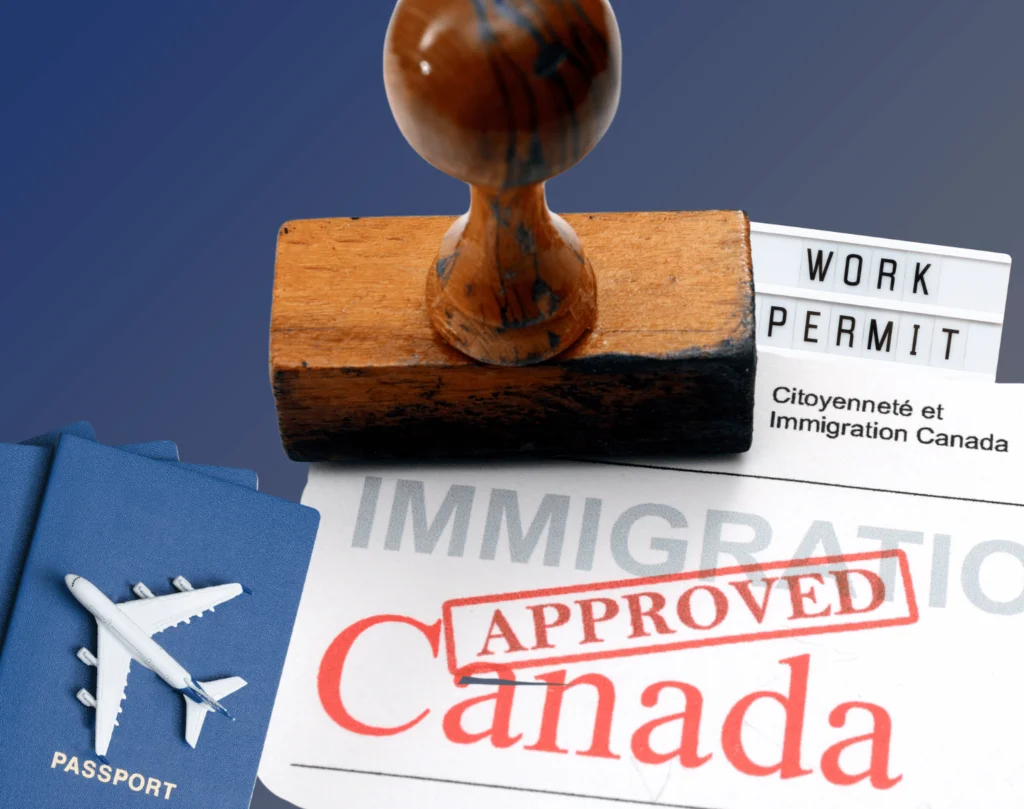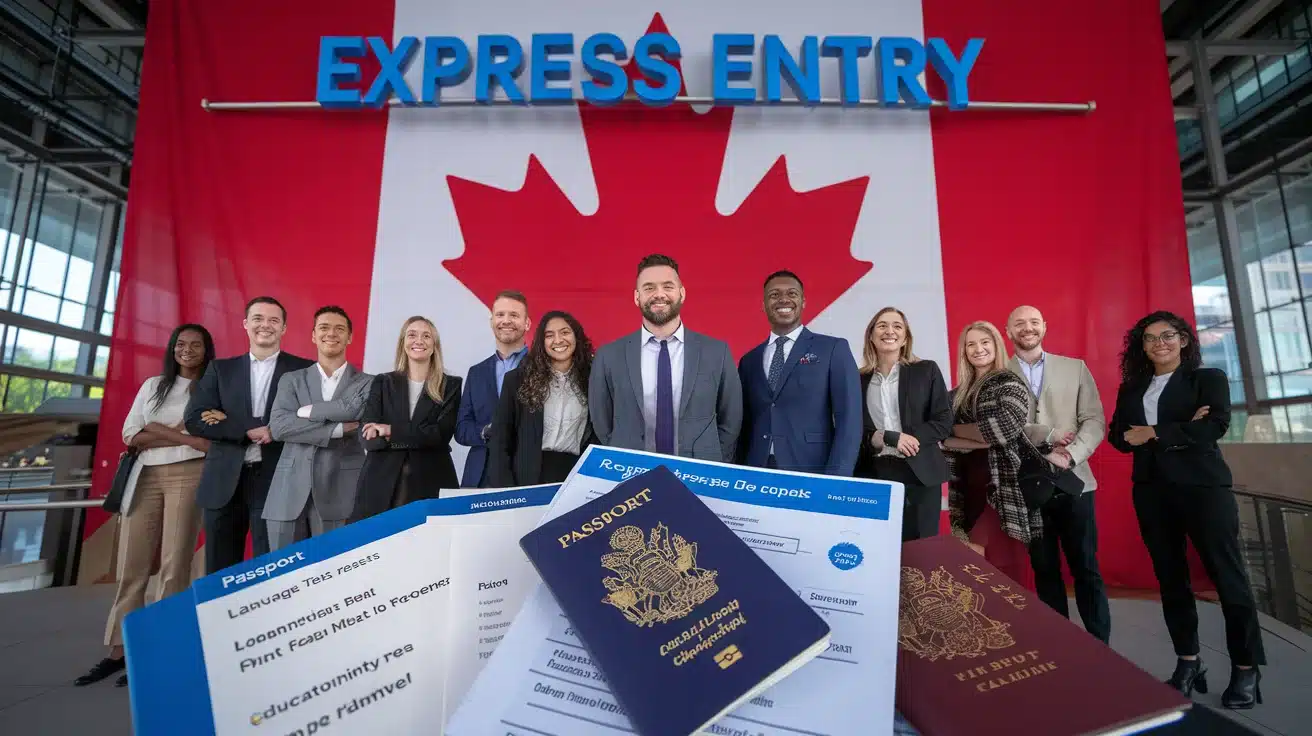LMIA Based Work Permit
Navigating Canada’s immigration process can feel overwhelming, but you don’t have to do it alone. At Can X, we’re dedicated to making your journey seamless, empowering individuals and employers with expert guidance and tailored solutions. Whether you’re an aspiring foreign worker or a Canadian employer facing labor shortages, our team of seasoned immigration consultants is here to simplify the LMIA based work permit process.
With a proven track record, cutting edge solutions, and a commitment to personalized service, we’ve positioned ourselves as the premier immigration assistance provider in Canada.

Why Can X
Unmatched Expertise: Our deep understanding of Labour Market Impact Assessments (LMIAs) and Canadian immigration laws ensures your application is meticulous and compliant.
Personalized Service: Every case is unique, and we offer customized immigration solutions to meet your specific needs.
Proven Success: Trusted by clients across 30+ countries, we’ve guided thousands of individuals and businesses to success.
Comprehensive Support: From pre-application advice to post-approval guidance, we’re with you every step of the way.
Affordable Excellence: We combine quality services with competitive pricing to ensure access for all.
Trusted by Clients from 30+ Countries
We provide trusted and effective Immigration solutions, assisting clients from around the world in successfully starting their new life in Canada.
What is an LMIA Based Work Permit?
An LMIA based work permit is a two-step process required when Canadian employers need to hire foreign workers. The process ensures that hiring internationally does not negatively affect the Canadian labor market while addressing genuine labor shortages.
Step 1: Employer Applies for LMIA: The employer submits an LMIA application to Employment and Social Development Canada (ESDC), demonstrating:
✓ A genuine need to hire a foreign worker.
✓ Efforts to recruit Canadian citizens or permanent residents.
✓ That hiring internationally will benefit the labor market.
A positive LMIA confirms these criteria, paving the way for the worker’s application.
Step 2: Worker Applies for a Work Permit
With a positive LMIA, the worker applies to Immigration, Refugees, and Citizenship Canada (IRCC) for a work permit. This step requires:
✓ Proof of qualifications, experience, and language proficiency.
✓ Evidence of intent to return to their home country after the work permit expires.
✓ Submission of the application before the LMIA’s expiration date.
Skilled and Semi skilled Work Permit Categories
Skilled Work Permits
For roles classified under TEER 0, 1, 2, and 3 in the National Occupation Classification (NOC) system. These positions require advanced education, training, or experience and include:
TEER 0: Management positions.
TEER 1: Roles requiring a university degree (e.g., engineers, IT specialists).
TEER 2: Jobs needing a college diploma or apprenticeship training (e.g., electricians, carpenters).
TEER 3: Positions requiring less than two years of training or over six months of on-the-job experience.
Semi Skilled Work Permits
Designed for TEER 4 and 5 roles, these jobs are vital to Canada’s economy and include positions in agriculture, hospitality, and retail:
TEER 4: Jobs requiring high school education or job-specific training (e.g., store clerks, cooks).
TEER 5: Manual labor roles offering on-the-job learning (e.g., farmworkers, general laborers).
Challenges and How We Solve Them
Applying for an LMIA-based work permit can come with obstacles:
Tight Deadlines: LMIA and work permit applications must align with strict timelines.
Complex Documentation: Incomplete or inconsistent paperwork often leads to delays or refusals.
Temporary Intent: Applicants must convincingly demonstrate their intent to return home after their work term.
At Can X, we tackle these challenges head-on, providing meticulous document reviews, timeline tracking, and comprehensive support to maximize your success.
Employer Responsibilities for Hiring Workers Under Semiskilled Work Permits
Hiring foreign workers under an LMIA-based work permit requires employers to:
- Cover return airfare for the worker.
- Provide access to affordable and suitable accommodation.
- Offer temporary health insurance until provincial coverage begins.
- Register workers with workplace safety insurance.
- Draft a detailed employment contract outlining roles, responsibilities, and wages.
Navigating the Path to a Canadian Work Permit After LMIA Approval
A positive LMIA marks the beginning of your journey towards a Canadian work visa. Acting as a key job offer, the LMIA details specific job requirements for a particular role. It’s essential to realize that the paths to obtaining an LMIA and a work permit are separate, each with its own set of requirements.
The LMIA: A Green Light, not a Guarantee
Receiving a positive LMIA is an exciting first step, but it doesn’t guarantee your work permit. The LMIA confirms your job offer and outlines the requirements, but now it’s your turn to demonstrate you meet those criteria. This involves proving your qualifications, skills, and experience match what’s needed for the role.
The Real Work Begins: Your Work Permit Application: A positive LMIA opens the door, but your work permit application is where the journey truly starts. You need to clearly show Immigration, Refugees, and Citizenship Canada (IRCC) that you are qualified for the job and ready to fulfill the role as specified in the LMIA.
Extra Challenges for Visa Required Applicants: For applicants from visa-required countries, the process can be more complex. Along with meeting job requirements, you must provide strong evidence of ties to your home country – such as family connections, property ownership, or ongoing employment – to convince IRCC of your intent to return after your work permit expires.
Proving Your Stay is Temporary: Another critical part of the process is demonstrating that your stay in Canada will be temporary. IRCC will look for a clear plan showing you intend to return home once your work permit ends. Providing credible and detailed documentation is essential to meeting this requirement.
Overcoming Documentation Challenges: For some applicants, gathering and presenting consistent, verifiable documentation of qualifications and experience can be tricky, especially when standards differ between countries. Ensuring your documents align with Canadian requirements is key to avoiding setbacks.
Balancing Two Key Responsibilities: To succeed, you need to address two critical aspects: meeting all the job requirements outlined in the LMIA and proving your intent to return home. Both are equally important and must be addressed thoroughly and convincingly in your application.
Navigating Toward Success: While the process may feel complex, with careful preparation and attention to detail, it’s entirely achievable. A thoughtful, well-prepared application that meets IRCC’s standards can help you take this important step toward working and thriving in Canada. Remember, this isn’t just about fulfilling requirements – it’s the start of an exciting new chapter in your career.
Take the First Step Today
We bring over a decade of expertise in handling work permits and have proudly assisted clients from 30+ countries achieve their Canadian dreams. Our personalized approach ensures that every immigration case is tailored to your unique needs, offering expert guidance through every step of the process. Whether you’re applying for an open work permit, an LMIA based work permit, or exploring exemptions, our experienced team is here to simplify the process and maximize your chances of success.
FAQs About LMIA Based Work Permit
An LMIA is a document that Canadian employers need to obtain before hiring a foreign worker. It proves that there is a need for a foreign worker to fill the job and that no Canadian worker is available to do the job.
No! A positive LMIA is not a guarantee. It’s a prerequisite for a foreign worker to apply for a work permit, but the final decision lies with IRCC.
They often face higher visa refusal rates due to stringent immigration policies and must show intention to return to their home country post-employment.
LMIA validity varies, and the work permit application must be submitted to IRCC before the LMIA expires.
Foreign workers can demonstrate intent to return home by providing evidence of strong ties to their home country. It includes, but is not limited to, a home, a property, or a job that awaits them.
No! If you lose your job, you cannot continue to work in Canada on the same work permit. You need to apply for a new work permit tied to a new LMIA or job offer.
Yes! You may reapply for a work permit after a refusal if the LMIA is still valid (i.e., not expired). Ensure to address the reasons for the previous refusal in your new application and provide any additional required documentation.
Yes! Incomplete documentation is a common reason for work permit refusals. It’s essential to submit all required documents accurately and completely.
Yes! Failing to demonstrate that you meet the job qualifications outlined in the LMIA can lead to work permit refusal. Applicants must prove they are suitable for the role.
If your job offer in Canada is withdrawn before your work permit is issued, your work permit application will likely be refused since a valid job offer is a crucial requirement.
Yes! Failing to adequately demonstrate relevant work experience for the job role can lead to refusal of your work permit application.
Employers apply to Employment and Social Development Canada (ESDC) for an LMIA, demonstrating the need for a foreign worker. If positive, it indicates hiring a foreign worker won’t negatively impact the Canadian labor market.
The worker must apply to IRCC for a work permit, ensuring the application aligns with the job, employer, and location specified in the LMIA, and submit it before the LMIA expires.
Applicants need to provide evidence of meeting the job criteria in the LMIA, including skills, experience, qualifications, and intent to return to their home country.
IRCC reviews work permit applications, ensuring compliance with immigration laws and LMIA criteria. They make the final decision on work permit issuance.
Yes! Except for some specific streams like the agriculture stream, both skilled and semi-skilled work permit applicants generally need to demonstrate proficiency in English or French.
Some of the most common reasons for refusal include insufficient proof of returning home after your work term, insufficient job qualifications, and discrepancies in application documents.
Yes! Insufficient funds to support yourself in Canada may be a reason for a work permit refusal. Applicants must prove they have enough money to cover their stay.
Yes! Criminal records can affect your work permit application. IRCC may refuse entry to individuals with certain criminal backgrounds to ensure security.
Yes! Any misrepresentation or providing false information in your application is taken seriously and can result in a refusal, and potentially future inadmissibility to Canada.
A change of employer on an LMIA-based work permit isn’t straightforward. You would need to obtain a new LMIA and apply for a new work permit for a different employer.
No! You cannot legally work in Canada once your work permit expires. You must either leave Canada or apply for a permit renewal or change of status before it expires.
Got more questions? We’re here with the answers!
Got more questions? Unsure about the process or what’s next? We’re here to guide, support, and simplify every step of your journey.
Your journey begins with one conversation - let’s start now!




